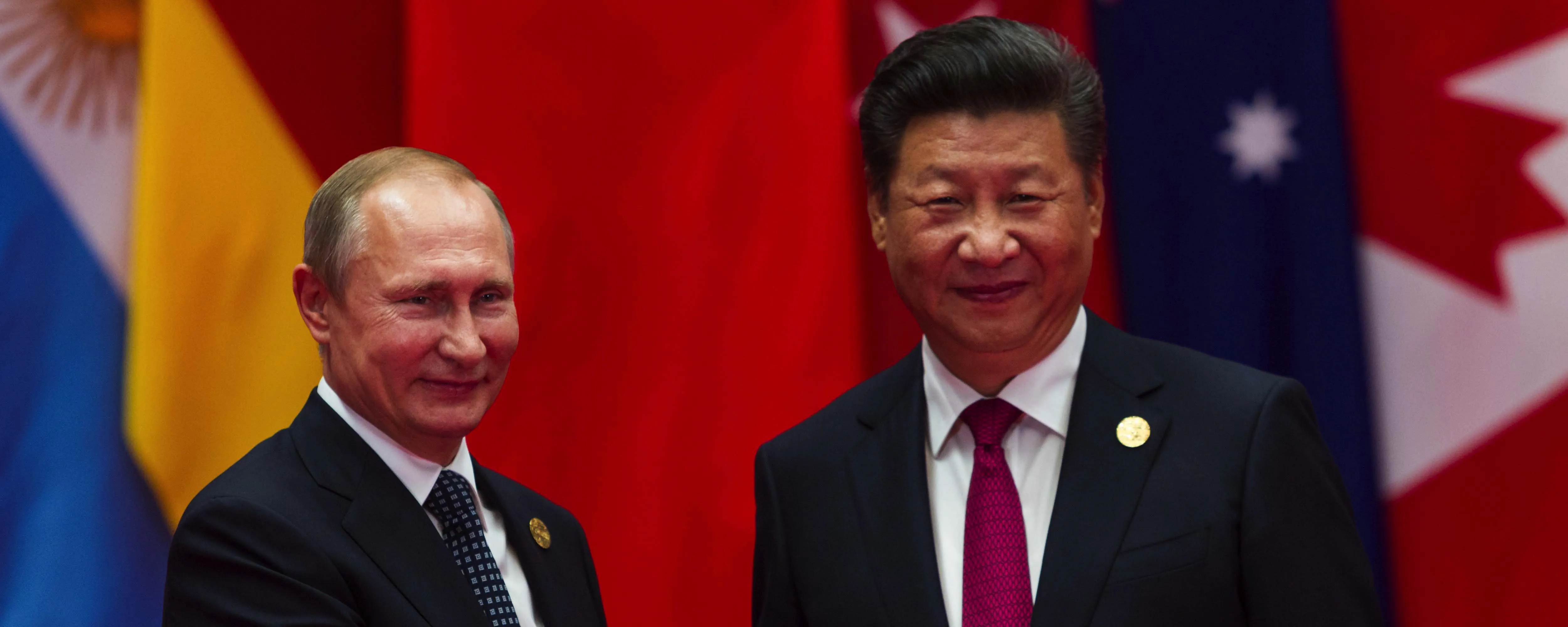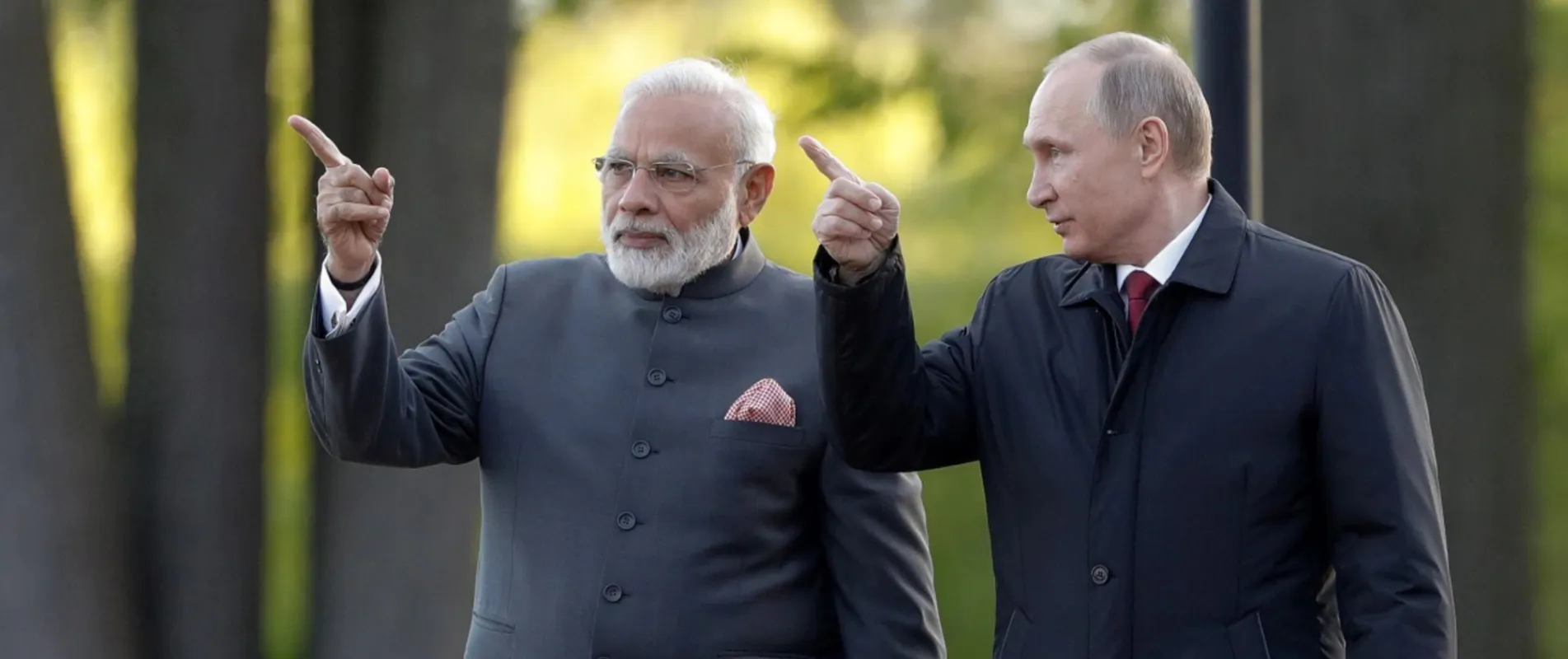23 October 2024
COMMENT: Is BRICS+ a challenge to the G7 and the established world order?
As Russia hosts a summit of 36 world leaders, Dr Sean Kenji Starrs, Lecturer in the Department of International Development, considers whether the expanding BRICS+ initiative constitutes any sort of challenge to the US and its allies.

Established in 2009, and later expanded in 2024, the BRICS+ geopolitical bloc draws its name from its original members (Brazil, Russia, India, China and South Africa) but now also includes Iran, Egypt, Ethiopia and the UAE. Saudi Arabia has been invited and others, such as Turkey, are also expected to join. Its members constitute 45% of the world’s population and 28% of its economic output.
As such, it is often described as a geopolitical counterweight to the G7. However, of the current make-up of the BRICS+, only Russia and Iran are serious about challenging the West's dominance. The most important country is of course China, and China has more or less followed US-led sanctions on Russia and Iran, most importantly cutting Russia off from dollar financing because Chinese state-owned enterprise banks also do not want to be cut off from the US dollar and Wall Street.
And as long as China remains integrated in the global financial system centered on the US dollar, China is effectively the largest foreign funder of everything the US does, including sending weapons to Ukraine that are used against Russia and Taiwan that are pointed towards China.

China is of course also deeply integrated in global supply chain and trade networks, all dependent on the US dollar. It would be a disaster for the already struggling Chinese economy if China made any serious moves to decouple from this global dollar system, regardless of the rhetoric of the Chinese Communist Party nor Putin for that matter.
Moreover, I think it was a strategic mistake to invite Egypt and to a lesser extent UAE into the BRICS+. Egypt is a decades-long ally of the United States, often the second-largest recipient of US military aid (after Israel), and the UAE also has a very close military relationship with the US and West more generally.
As Charles De Gaulle in the 1960s warned that the UK entering the European Economic Community would be a Trojan horse for the US, I think a similar dynamic applies with inviting Egypt and UAE into BRICS+.
Argentina was also slated to join but then had a presidential election where the much more pro-Western Milei was elected. Milei promptly canceled Argentina's request to join and also talked about re-dollarising its economy and moving away from China's RMB (after the previous President promised to trade more in RMB and form closer ties with China).
This shows that BRICS+ integration and coherence is rocky at best and should caution us to make any future projections based on current "presentist" news rather than deeper structural forces. Also, it is notable that Saudi Arabia has not yet joined along with UAE even though they said they would, and I suspect there is some back-room dealings with the US.
Finally, there are seriously strained relations between China and India, which significantly hampers collective BRICS action to the point of incoherence. The original BRICS members are nowhere near as united as the G7 even without these new members.

China and India still have deadly border clashes, India has kicked out much Chinese hi-tech (and is doing its best to angle for Western-owned hi-tech leaving China), is a key member of the Quad (with Australia, Japan, and the US).
In addition, the India-Middle East-Europe Economic corridor announced at the September 2023 New Delhi G20 meeting is a challenge to China's Belt and Road Initiative. As a sign of stressed ties between the two most populous nations on Earth, this was the first G20 leaders' summit that Xi Jinping did not attend (neither personally nor via video link).
The first step for the BRICS+ to challenge the West would be to build consensus for such a project, which does not exist, and most importantly to sell more oil in a currency other than the US dollar.
But Russia trying to sell its fossil fuels to India post-2022 US sanctions in a messy mix of renminbi, rubles, rupees, and even Emirati dinars - this reveals the difficult reality of trying to move away from a single global transactions currency. Indeed, after a quarter of a century, the euro is still a minnow in extra-EU trade compared to the greenback.
The BRICS would also have to agree on some sort of military alliance, a mutual defense pact, which currently not even Russia and Iran are willing to do, despite them both trading arms with each other during their respective wars.
NATO, on the other hand, has only increased its integration and reach since 2022 far beyond the North Atlantic to reach the Pacific Ocean, with Australia, Japan, New Zealand, and South Korea joining NATO summits for the first time in its 75-year history.
So, while there will be lots of handshakes, hugs, and bows at this latest BRICS summit, the structural realities of power in the world system will likely persist.

